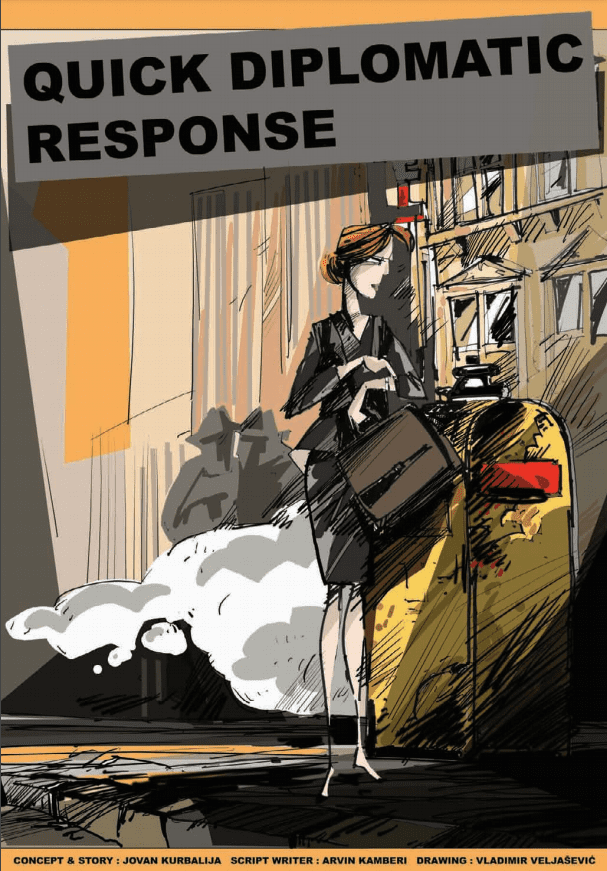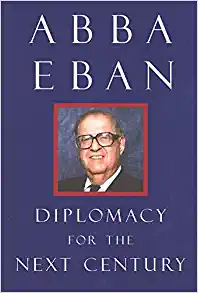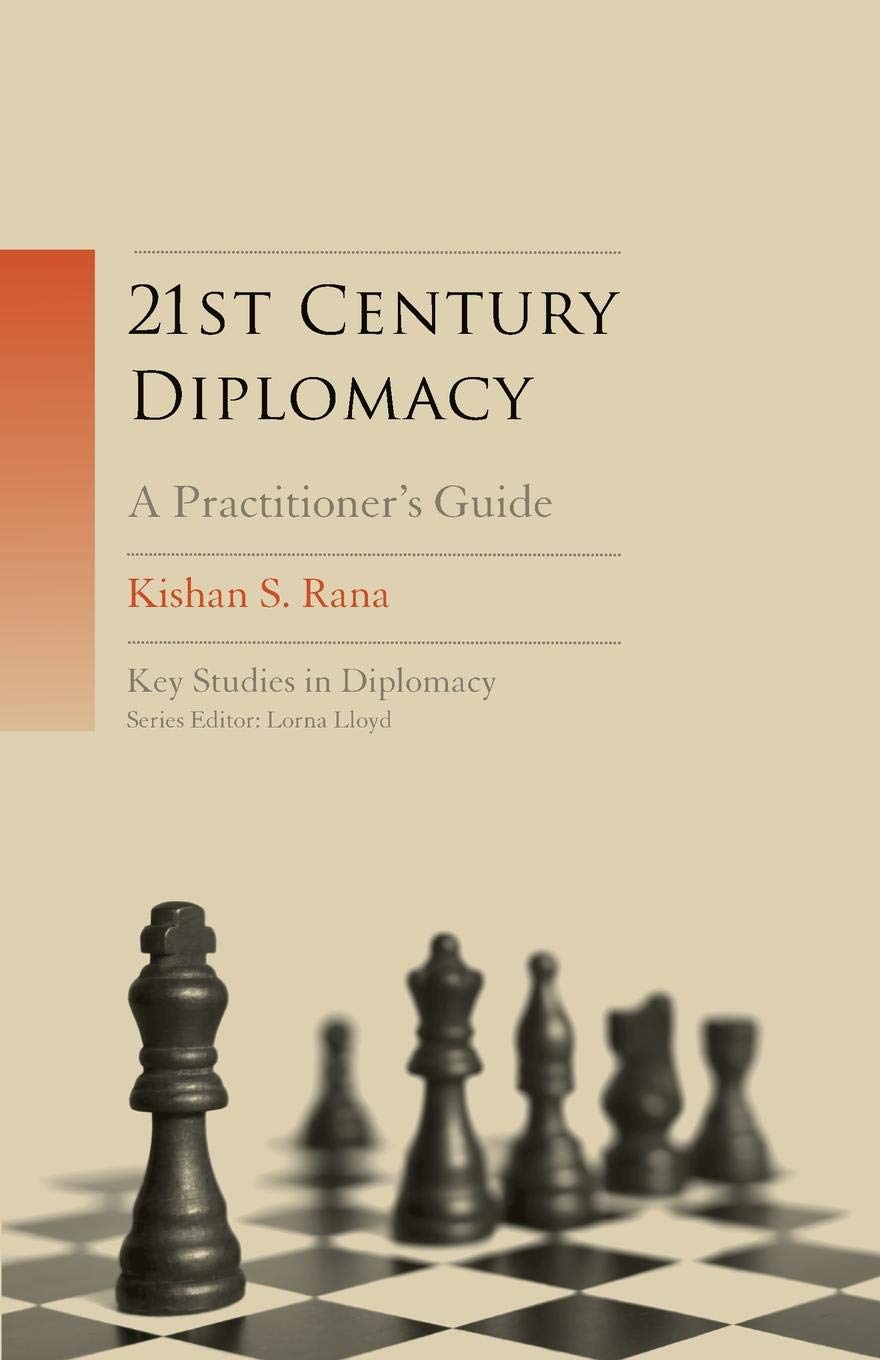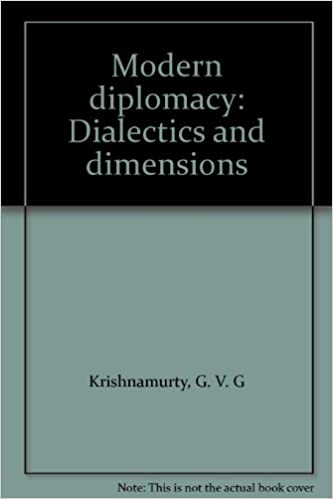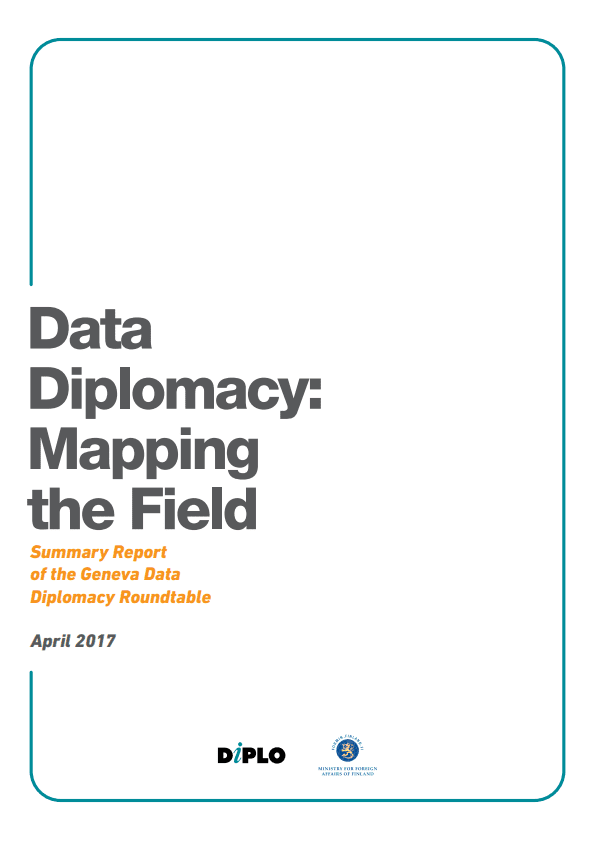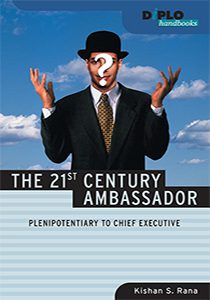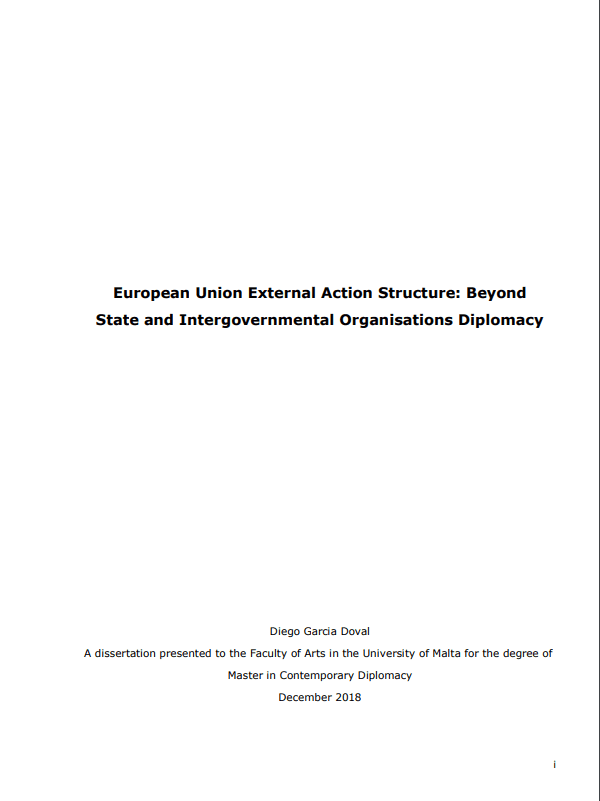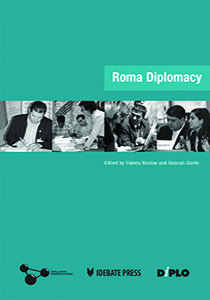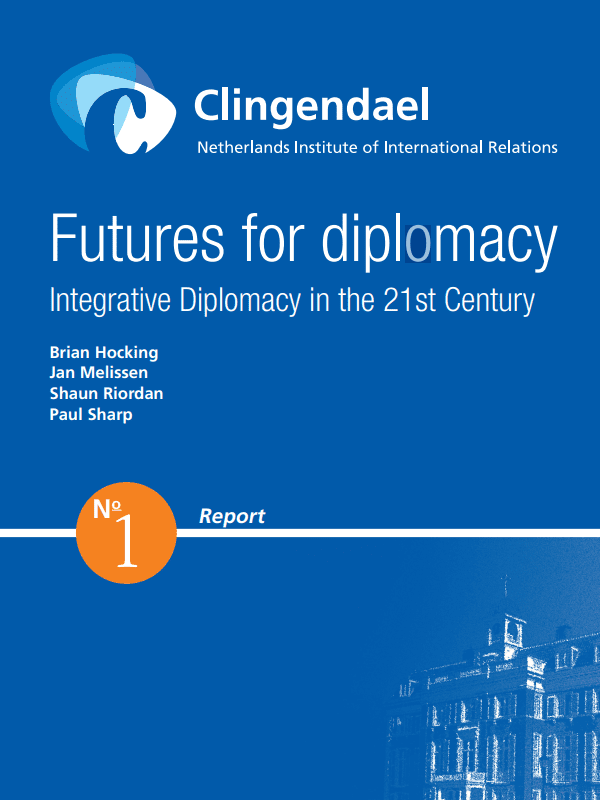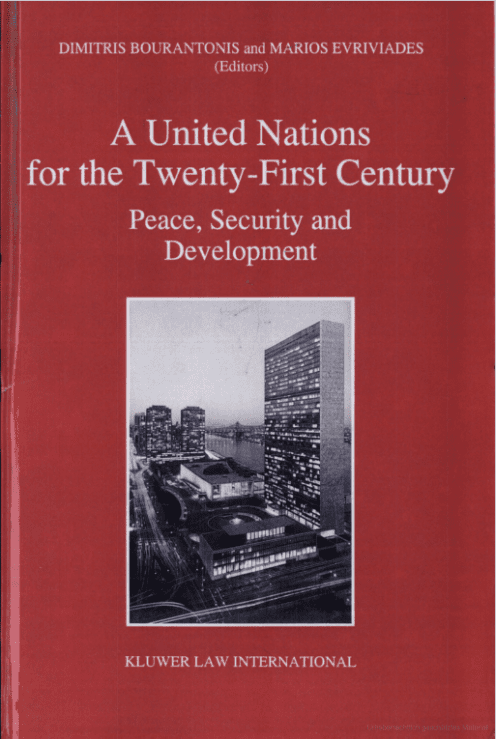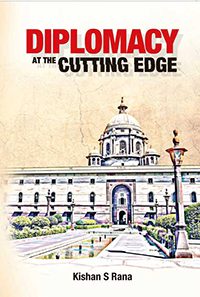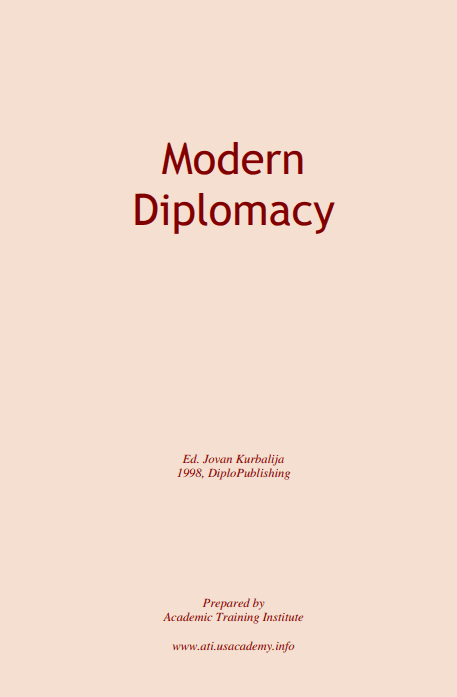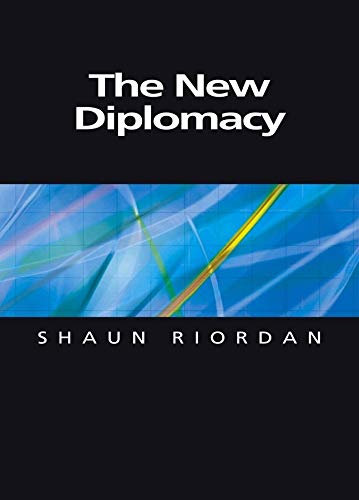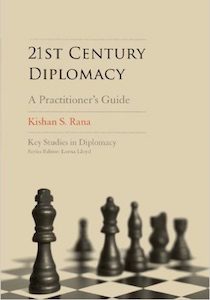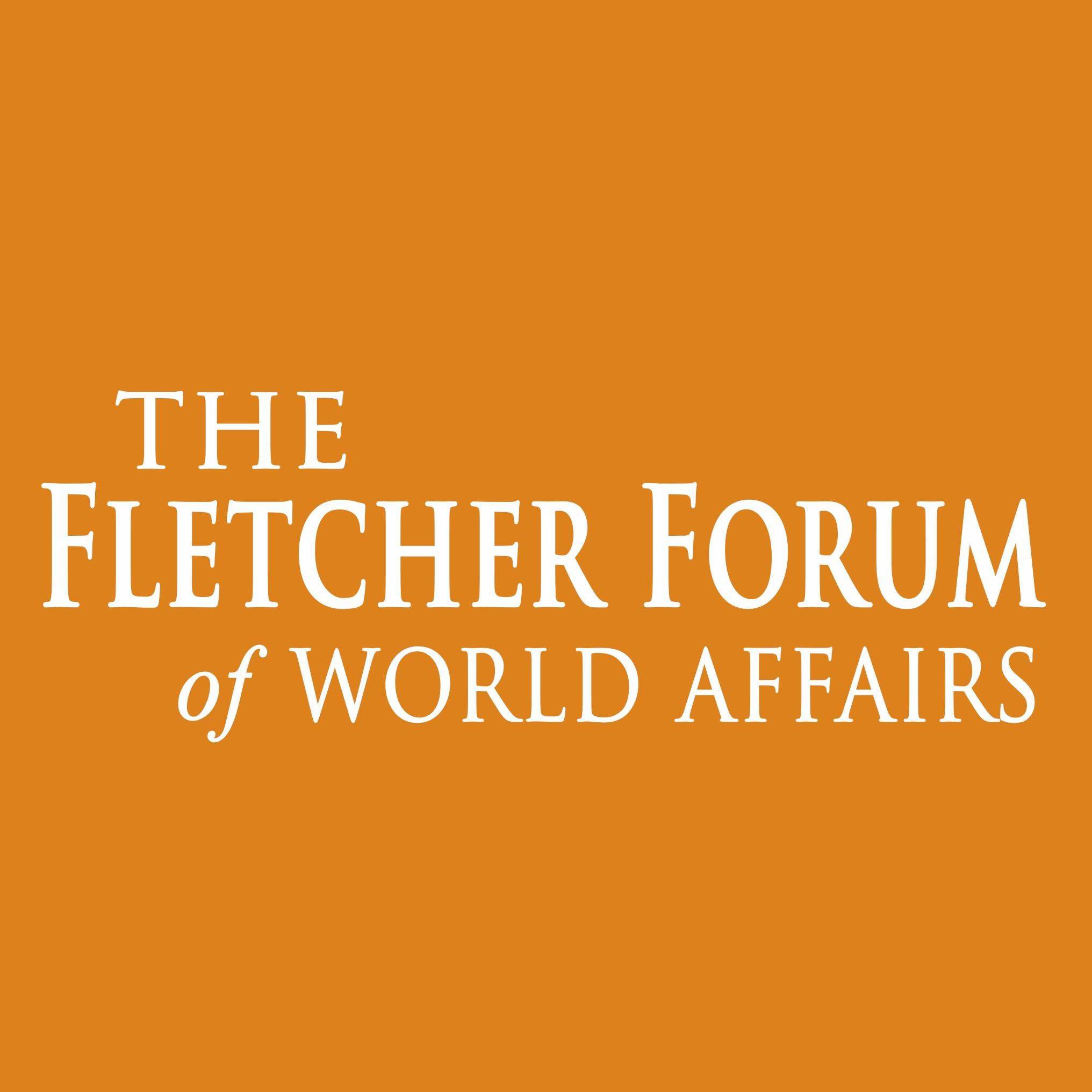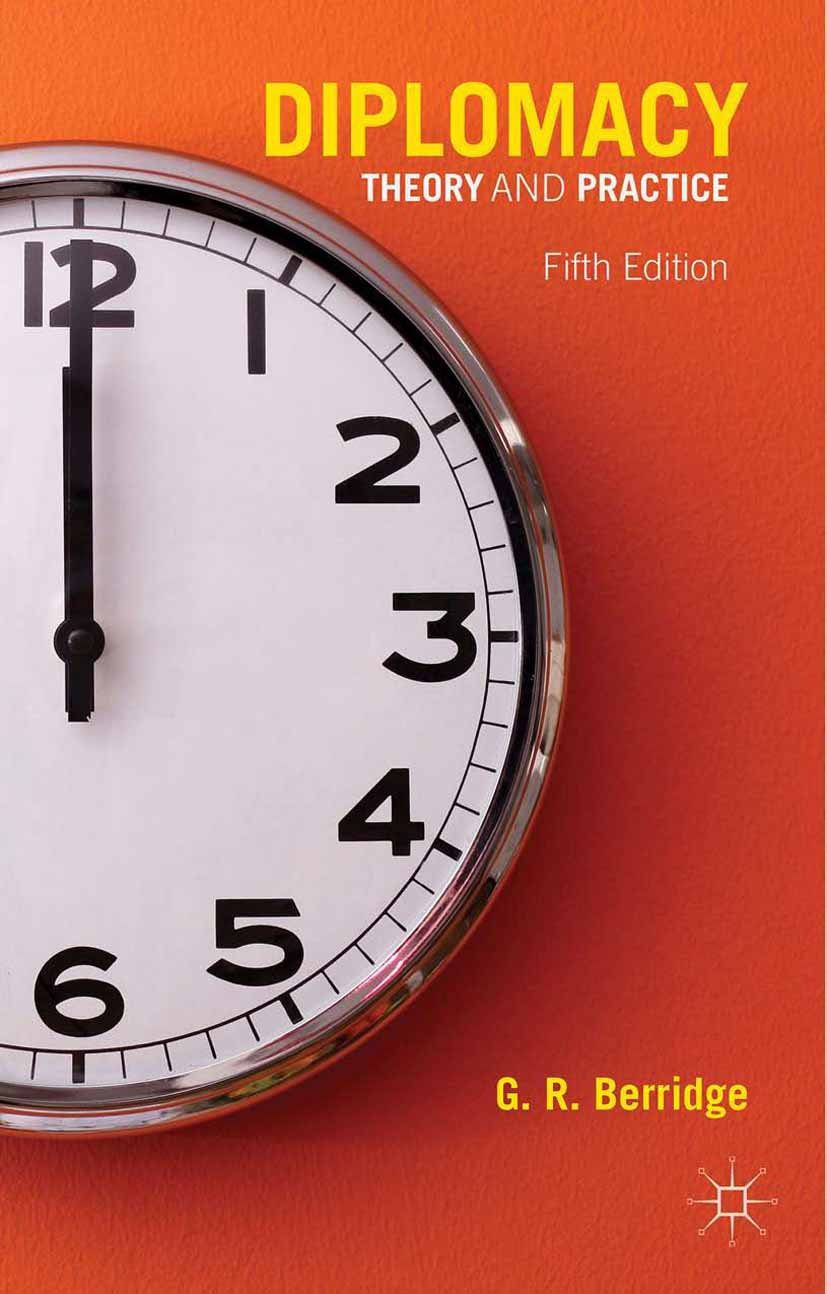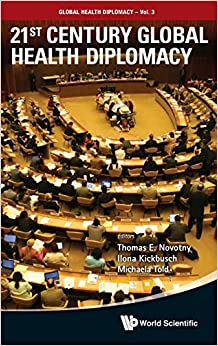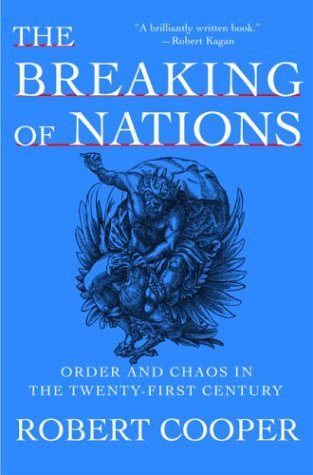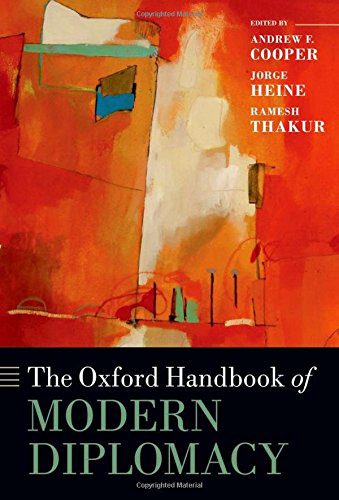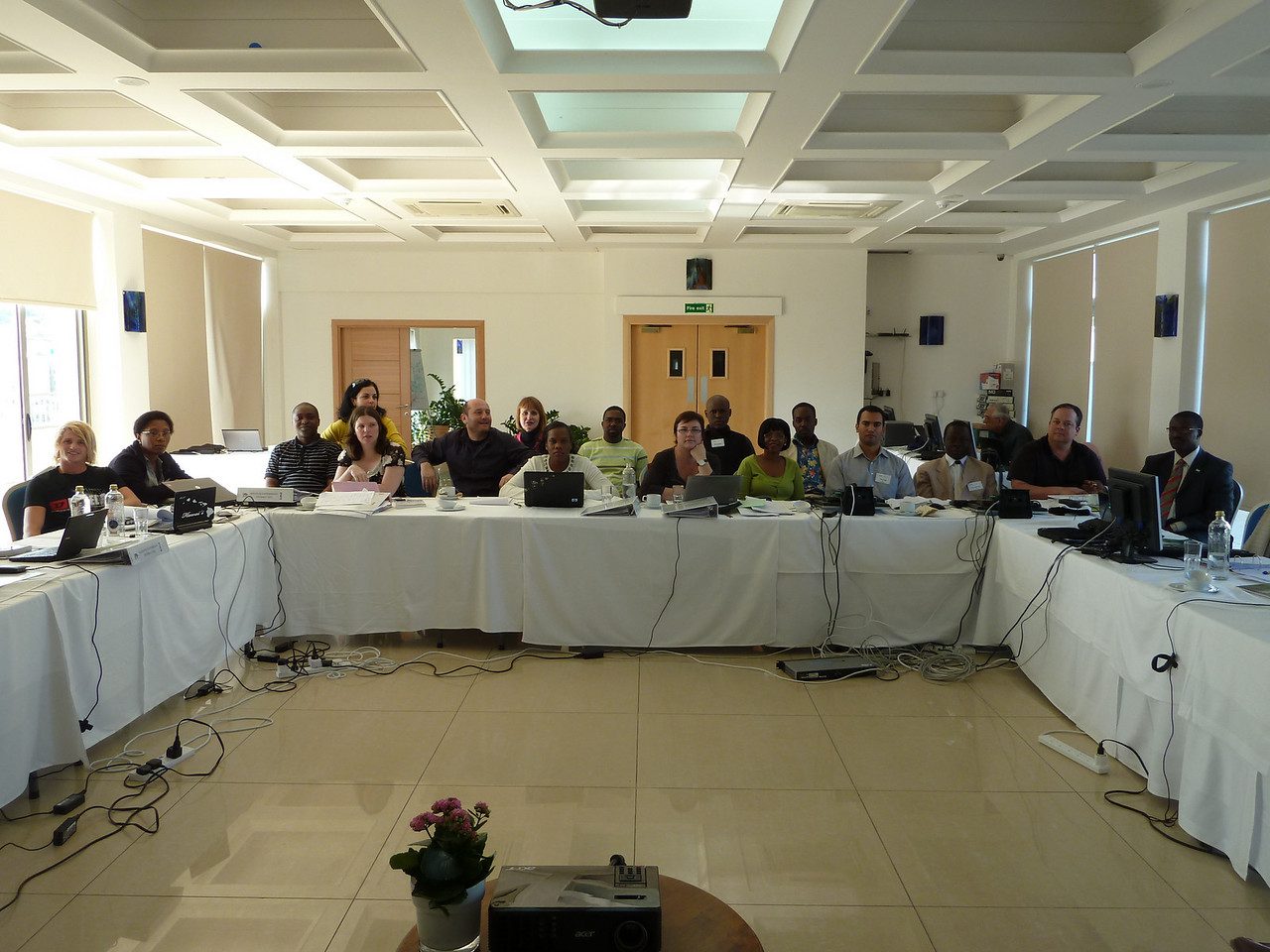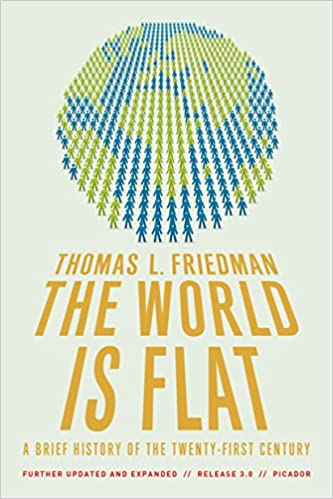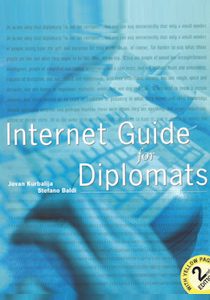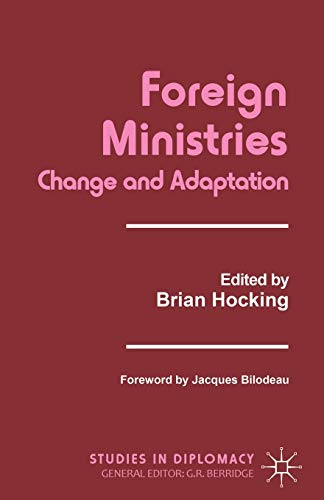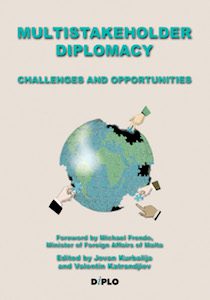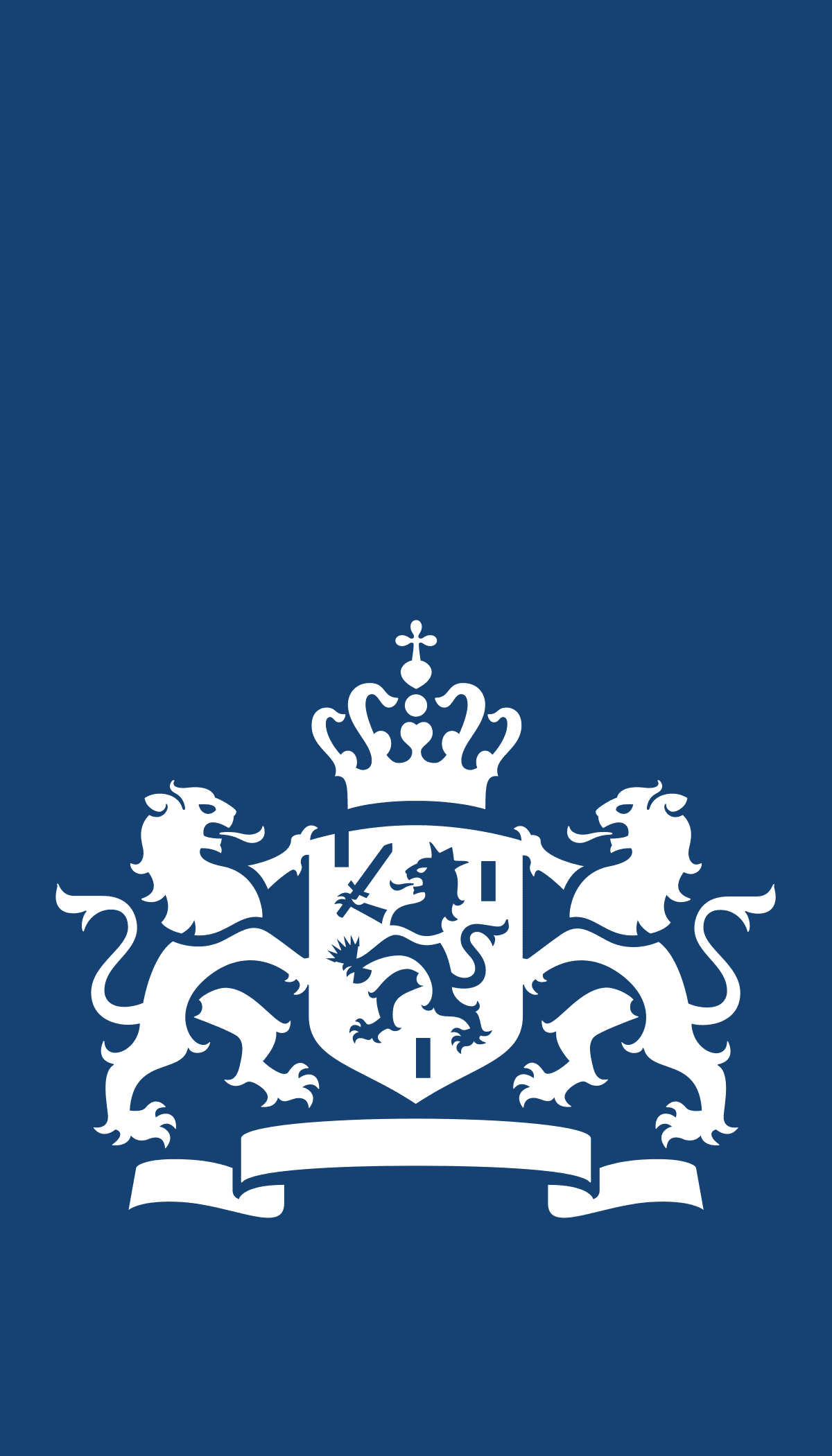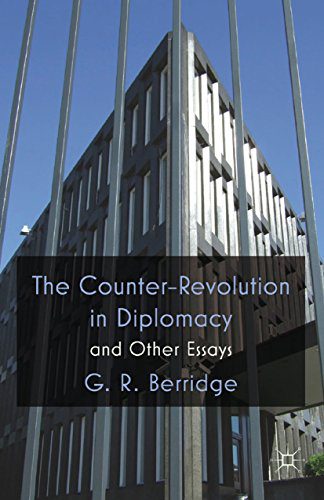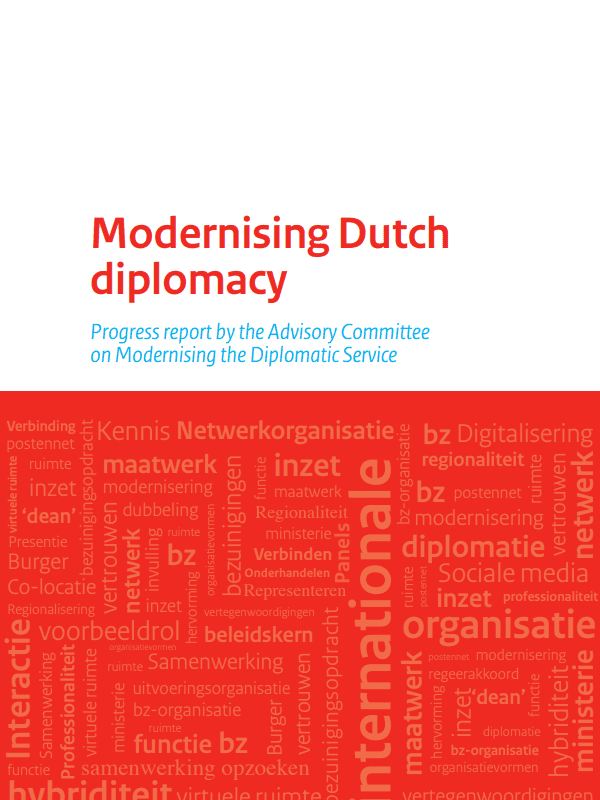Author: Wynne Elizabeth Russell
“Control yourself, Sir!”: A call for research into emotion cultures in diplomacy
2004
Diplomats are paid to have cool minds and even cooler temperaments.1Los Angeles Times, Washington, 8 May 2003
This brief essay—a call for further research rather than a summary of existing findings—speculates on the existence of an area of potential misunderstanding, yet also of potential solidarity, among diplomats: that of emotion culture. All diplomats know that different cultures have different triggers for emotion (e.g., what would be taken as a joke in one culture is heard as an insult in another), as well as different rules governing the expression of emotion (one has but to compare the scene at funerals around the globe).2The scholarly literature on emotion often uses “emotion,” “feeling,” or “affect” interchangeably, a tendency that more rigorous theoreticians have deplored. Interestingly, in an approach that sits nicely with the emphasis here, some writers present “feelings” as essentially private sensations which become “emotions” when enacted in social situations according to cultural rules of definition and display. Sensitivity to these cultural differences is indeed a key attribute of a good diplomat, whose job so often involves maintaining a cordial atmosphere or defusing an already tense situation. However, here it is argued that diplomats may, in fact, face a further challenge—that of deciphering the emotion culture of the international practice of diplomacy itself.
This essay first examines and seeks to explode the notion that diplomats are, or should be, immune to emotion in the conduct of their duties. Second, it discusses the concept of emotion cultures—cultural rules governing the experience and expression of emotion. Third, it suggests the possibility that modern diplomacy, perhaps a distinctive culture in itself, encourages the socialisation of diplomats into a distinctive, ostensibly global diplomatic emotion culture. Last, it suggests a number of research questions.
The Ambassadorial Ideal and the Eviction of Emotion
Few would question the idea that international politics is a realm of emotion.3For an excellent overview of European and American writing on the subject of emotion in politics, see Philippe Braud, L’ émotion en politique (Paris: Presse de Sciences Po, 1996).Classical historians and philosophers of international relations, from Thucydides to Hobbes and Grotius, assumed that the “passions” had an important role to play in international conflict, explaining the causes of war in terms of human emotions such as greed and pride.4For example, Thucydides, detailing the progress of the Corcyran civil war, saw revenge as more important than self-preservation; and his Athenians, explaining their expansionist ambitions to the Spartans, describe their primary motivation as fear of Persia.Even liberal thinkers such as Locke, Bentham and Kant, who looked forward to a reason-based transnational consensus of interest, started from the premise that the passions would need to be tamed first, while their conservative as well as radical critics (Burke on the one hand, Marx and Engels on the other) concluded that the passionate nature of humankind would never be eradicated.5Torbjorn Knutsen, A History of International Relations Theory (Manchester: Manchester University Press, 1992), 92-93, 112, 136.) Within the classical realist tradition of the twentieth century, the passions reassert themselves; the writings of Hans Morgenthau, for example, are sprinkled with references to trust and love, exaltation and pride, and frustration, insecurity and fear.6Hans Morgenthau and Kenneth Thompson, Politics Among Nations: The Struggle for Power and Peace (New York: Alfred A. Knopf, 1985), 34-35, 119, 124-125.
Nevertheless, the specialist literature, as well as the public imagination, conventionally depicts diplomacy—the institution by which much of this passionate world of international politics is negotiated—as a realm in which emotion should play no part. Indeed, the ideal of the dispassionate diplomat has been perpetuated by generations of post-Renaissance European diplomatic handbooks. Medieval writers, for the most part, focused on ambassadors as “servants of god,” and therefore on their moral qualities.7Dorothy Jones, Splendid Encounters: The Thought and Conduct of Diplomacy (Chicago: University of Chicago Press, 1984), 52. As J. L. Holzgrefe writes: “One finds, for example, Conradus Brunus sententiously exhorting kings not to appoint as an ambassador anyone who is … seditious, heretical, an arsonist, a despoiler of churches, sacrilegious, a pagan, a Saracen, Jewish, atheistic, or, worst of all, ‘a ravisher of vestal virgins.’” But a rash of treatises on diplomacy in the sixteenth and seventeenth centuries began to focus on how “civilized behaviour was to be propagated among ‘ideal ambassadors’…[as well as] reproduced in the fledgling institutions of a states-system.8James Der Derian, “Diplomacy,” in The Oxford Companion to the Politics of the World (Oxford: Oxford University Press, 1993), 244. The model of the perfect ambassador presented in these works shifted over the years from the ideal humanist scholar described by writers such as Frederici de Marselaer (Legatus, Libri Duo, 1618) to the “well-bred gentleman” portrayed in Juan de Vera’s El Embajador (1620), from which text comes the term “the perfect ambassador.(9Cited in Jones, Splendid Encounters, 52. The “qualities of mind and feeling” that such an ambassador should cultivate most assiduously, according to the accomplished diplomat Abraham de Wicquefort (L’ambassadeur et ses fonctions, 1679), were prudence and modération, the latter meaning the ability to curb one’s temper and to remain cool in moments of tension. “Those spirits,” de Wiquefort warned, “who are compounded of sulfur and saltpetre, whom the slightest spark can set alight, are easily capable of compromising affairs by their excitability.10Cited in Gordon Craig, “On the Nature of Diplomatic History: The Relevance of Some Old Books,” in Paul Gordon Lauren, ed., Diplomacy: New Approaches in History, Theory and Policy (London: Collier Macmillan Publishers, 1979), 26. Forty years later, in his influential De la manière de négocier avec les Souverains (1716), François de Callières repeated many of de Wiquefort’s injunctions, dedicating nearly half a chapter to the need for a minister to possess the quality of emotional control. “A man of an odd, uneven temper, who is not master of his humours and passions, ought not to engage himself in the business of negotiations,” de Callières warned, preferring “a man who has the command of himself, and is always in a cool sedate temper.11François de Callières, The Art of Diplomacy, H. M. A Keens-Soper and Karl Schweizer, eds. (New York: Leicester University Press and Holmes and Meier Publishers, 1983), 87. Over two hundred years and dozens of major treatises later, one of the “essential” qualities of a diplomat listed by Sir Harold Nicolson in his classic treatise on diplomacy remained “the quality of calm.12Sir Harold Nicolson, Diplomacy, 3rd ed. (London: Oxford, 1969), 62 As Nicolson recounted in appal: “The occasions on which diplomatists have lost their tempers are remembered with horror by generations of their successors. Napoleon lost his temper with Metternich in the Marcolini Palace at Dresden on June 26, 1813, and flung his hat upon the carpet, with the most unfortunate results. Sir Charles Euan Smith lost his temper with the Sultan of Morocco and tore up a treaty in the imperial presence. Count Tattenbach lost his temper at the Algeciras Conference and exposed his country to a grave diplomatic humiliation. Herr Stinnes lost his temper at Spa.”) In fact, for some writers, what diplomats should be had become what they were: “what really distinguishes the diplomat from the common herd,” experienced diplomat Jules Cambon opined in 1931, “is his indifference to its emotions.13Jules Cambon, The Diplomatist (London: Philip Allan, 1931), 3.
The disdain for emotion expressed in these works mirrors shifts between the fifteenth and seventeenth centuries both in theories of the conduct of international relations and in the notion of reason itself. As Hedley Bull put it, the emergence of the “notion of the ‘ideal ambassador’ as a person governed by his reason rather than his passions, and seeking to subordinate the latter to the former…is bound up with the emergence of rationalism in the seventeenth century, and especially with the notion that the proper objective of states was the pursuit of their [‘true’ or objective] interests rather than of their honour or their faith.14Hedley Bull, The Anarchical Society: A Study of Order in World Politics (London: Macmillan, 1977), 169. This shift, as Bull suggests, in turn reflected the consolidation of an underlying “myth of rationality” that deemed emotion and reason to be not only separate, but inimical.15Jack Barbalet, Emotion, Social Theory, and Social Structure: A Macrosociological Approach (Cambridge: Cambridge University Press, 1998), 33-38. Under the influence of this conception of rationality, emotional responses came to be seen as “disruptive,” “illogical,” “biased” or “weak,” and emotion “a deviation from what is sensible or intelligent”–a prejudice that lingers to this day.16Linda Putnam and Dennis Mumby, “Organizations, Emotion, and the Myth of Rationality,” in Fineman, Emotion in Organizations, 36. For a detailed dissection and refutation of the reason/emotion dichotomy, see Barbalet, Emotion, Social Theory, and Social Structure, 29-61.
The perceived need for professional representatives to control their own emotions seemingly has been made all the more urgent by what diplomats themselves have frequently bewailed as the inability of political leaders to control theirs. As de Calliéres complained, “the passions of princes…often overrule their interests. 17Cited in Bull, The Anarchical Society, 169. The role of the diplomat thus was and is still seen to be one of “helping to ensure that the interests of rulers triumph over their passions, and not their passions over their interests.18Ibid., 169. The “rulers” in question were initially monarchs. “Sovereigns,” warned de Wicquefort, “cannot meet without the risk of prejudice to themselves or to their affairs.19Cited in Jones, Splendid Encounters, 19. But democratically elected rulers have shown themselves no more trustworthy in this regard: of the many dangers of diplomacy by conference, Nicolson recounts, one of the greatest is that leaders “would return from the interview, but with sentiments of lasting personal dislike,” a situation that could lead to disastrous consequences. 20Sir Harold Nicolson, The Evolution of the Diplomatic Method (London: Constable & Co. Ltd, 1954), 43.
Yet would it be correct to say that the classic diplomatic manuals of Europe expect diplomacy to ignore the existence of emotion altogether? Certainly, the diplomats of the classical literature are expected to have a keen appreciation of the feelings of others. A successful negotiator, de Wiquefort observed, must be able to play on the emotions of others: “Ministers are but men and as such have their weaknesses, that is to say, their passions and their interests, which the Ambassador ought to know if he wished to do honor to himself and his Master.21Cited in Craig, “On the Nature of Diplomatic History,” 25. Three hundred years later, former British Ambassador Peter Marshall concurred: “Diplomacy must rank as one of the higher forms of persuasion. People may be persuaded by reason or by feeling, or in all probability by a combination of both. 22Sir Peter Marshall, Positive Diplomacy (London: Macmillan Publishers, 1997), 154. Even more importantly, diplomats are expected to be considerate of others’ feelings; hence the popular use of the term “diplomatic” to mean “tactful” or “sensitive.” Sir Ernest Satow’s famous definition of diplomacy as “the application of intelligence and tact to the conduct of official relations between the governments of independent states” sums up the emphasis that classical diplomatic theorists placed on letting sleeping emotions lie.23 Sir Ernest Satow, A Guide to Diplomatic Practice (London: Longmans, Green, 1957), 1
Implicit in these concerns, of course, is the assumption that the feelings of other state representatives are subject to be riled. Nor should this be surprising: diplomats, by virtue of their ability to speak in the name of states, serve as embodiments of some of the most highly emotionally charged political entities in the modern world. 24All the major academic models of nationalism – pre-modern (ethnic), modern (socio-economic), and post-modern (cultural) – acknowledge nationalism’s emotive qualities; see Simon Dixon, “The Past in the Present: Contemporary Russian Nationalism in Historical Perspective,” in Geoffrey Hosking and Robert Service, eds., Russian Nationalism Past and Present (London: Macmillan, 1996), 153.Many recognise the emotional position of an “empowered negotiator of a country” as sharply different from that of negotiators for most firms, with the political dimension of diplomatic representation imposing additional emotional burdens25. (Paul Meerts, “The Changing Nature of Diplomatic Negotiation,” in Jan Melissen, ed., Innovation in Diplomatic Practice (London: Macmillan Press Ltd., 1999), 87. In particular, the kinds of relations of power and status that diplomats, in the name of and as an extension of the state, are required to navigate and negotiate are precisely those from which many of the social emotions—pride, humiliation—arise. 26See Theodore Kemper, “Social Relations and Emotions: A Structural Approach,” in Theodore Kemper, ed., Research Agendas in the Sociology of Emotions (Albany, NY: SUNY Press, 1990, for a discussion of the predictable relationship between negotiations of status and power and emotional outcomes.) Hence, Charles de Martens, in his famous Guide Diplomatique (1832), can say: “The least of inconsidered words can wound a whole nation. 27Craig, “On the Nature of Diplomatic History,” 22-23. And, hence, arises the difficulty of stepping back from a national position; as Cambon himself noted: “[t]his is by no means an easy matter sometimes, when one’s sympathies are involved.”28Cambon, Diplomatist, 22. In fact, a degree of emotional identification with the nation may be a necessary part of effective representation. First, representatives who are emotionally unengaged with the entity they represent will be less concerned with its fortunes and may be less vigorous in pursuing its interests. Second, for a representative of an entity, particularly one as potentially highly emotionally charged as a nation/state, not to be emotionally engaged with its fortunes might call into question in the eyes of others that entity’s ability to inspire loyalty. Consequently, a genuinely emotionally detached diplomat may be more of a liability, both in practical and in public relations terms, than an asset.
Indeed, what classical theorists of diplomacy were advocating was the ability, not to completely deny the existence of emotion, but to repress its expression, particularly in the case of the negative emotions. Nicolson, surveying fifteen and sixteenth century diplomatic manuals, noted their insistence that an ambassador must be “imperturbable, able to receive bad news without manifesting displeasure, or to hear himself maligned and misquoted without the slightest twinge of irritation.”29Nicolson, Evolution, 36. Nicolson added, regarding the ideal diplomat: “In the first place, he should be good-tempered, or at least he should be able to keep his ill-temper under perfect control.”30Nicolson, Diplomacy, 62.
One device that classical European diplomacy evolved to help diplomats keep their “ill-temper under perfect control” was an elaborate language for conveying displeasure without either overtly evincing emotion or causing offence. “Diplomatic” language, as Nicolson observed, means not only “those technical phrases which, in the course of centuries, have become part of the ordinary diplomatic vocabulary,” but also “that guarded understatement which enables diplomatists and ministers to say sharp things to each other without becoming provocative or impolite.”31Ibid., 122. Through the elaborate conventions of language of the seventeenth through nineteenth centuries, and even in today’s guarded phrases such as “frank exchange of views,” the “ideal diplomatist” works to minimise friction in relations between nations.32Bull, The Anarchical Society, 172. Indeed, diplomats have recorded the toll of working in environments where these conventions have been discarded; for example, then-US Ambassador to Moscow George Kennan recorded in his diary in mid-1963 the strain of living through an unusually vitriolic anti-US Soviet propaganda campaign, which he found “foul, malicious and insulting.”33George Kennan, Memoirs, 1950-1963 (London: Hutchinson, 1972), 162. Kennan found himself declared persona non grata by the Soviet government in September 1963 for having irritably compared the complete social isolation to which diplomats were subjected in Moscow to the conditions of the internment he had experienced in Germany in 1941-1942. The Soviet government considered his comment a “slanderous attack hostile to the Soviet Union in a rude violation of generally recognised norms of international law.”
Principles and codes governing and facilitating the expression of emotion in diplomatic exchanges have, of course, been noted by many. What has not been so broadly discussed is the possibility that these principles and codes serve as proof of the existence of a distinctive diplomatic “emotion culture.”
Emotion and Emotion Cultures
The idea of “emotion cultures” has received its most extensive discussion in the fields of anthropology, sociology and psychology. 34See Rom Harré, ed. The Social Construction of Emotions (Oxford: Basil Blackwell Ltd., 1986) for a general discussion of the concept’s evolution and antecedents. It emerges from thinking of emotions as social, rather than entirely personal, experiences. In this view, the focus of psychoanalytic and social psychological theories of emotion on the individualised, internally generated quality of emotion is at best excessive and at worst misplaced. 35Smith-Lovin, “The Sociology of Affect and Emotion,” 120-124. Far from being solitary events, many emotions result primarily or frequently from real, imagined or anticipated social interactions. 36Theodore Kemper, “Modernisation, Barbarism, and the Ethos of Modernity: The Interplay of Structure, Culture, and Emotions,” paper presented to the conference, “Emotion in Social Life and Social Theory,” The Australian National University (9-11 July 1997), 2. “An emotion,” Robert Solomon writes, “is intrinsically tied up with our social existence and our relations with others.…[The problem] is to retain the personal and experiential (‘phenomenological’) grasp of emotions but place emotions in a larger social context, treating them not only as the result of but as constituted in relations with other people. 37Robert Solomon, “Toward a Politics of Emotion,” paper presented to the conference “Emotions in Social Life and Social Theory,” The Australian National University (9-11 July 1997), 3.
Scholars interested in emotion cultures thus have tried to understand the application to emotion of sociological concepts such as norms of behaviour. Most diplomats as a matter of course encounter different cultural norms governing the display of emotion; funeral rites are an obvious example.38Smith-Lovin, “The Sociology of Affect and Emotion,” 127. Furthermore, underlying these display norms are also cultural norms influencing the way in which individuals experience emotion: norms governing the “type of emotion, the extent of emotion, and the duration of feeling that are appropriate in a situation. 39Ibid., 125. Some have argued that members of different cultures can experience culturally distinctive, mutually unintelligible emotions. See Catherine Lutz, Unnatural Emotions: Everyday Sentiments on a Micronesian Atoll and Their Challenge to Western Theory (Chicago: University of Chicago Press, 1988). Children are socialised into these emotion cultures at very early ages–as early as two, according to some researchers. 40James Russell, “Culture, Scripts, and Children’s Understanding of Emotion,” in Carolyn Saarni and Paul Harris, eds., Children’s Understanding of Emotion (Cambridge: Cambridge University Press, 1990). An individual’s ability to master and adhere to these cultural rules often affects others’ perceptions of her or his social efficacy, maturity and mental health. 41Thomas Scheff, Being Mentally Ill: A Sociological Theory (Chicago: Aldine Publishing Company, 1966). Underlying these norms are different cultural conceptions of the nature of emotion, as well as of the relationship of emotion to human health. 42For instance, the Western notion that emotion is internally generated and privately experienced has led to a ‘container’ metaphor that compares strong feeling with steam building up in a closed vessel (Smith-Lovin, ibid., 127).
Scholars have discussed the contextual or situational norms governing the display and experience of emotion, with different implications for the examination of emotion cultures in diplomacy. While some scholars have focused on the national and ethnic cultural level, others have focused on the level of organisations or firms. 43See, for example, Karl Heider, Landscapes of Emotion: Mapping Three Cultures of Emotion in Indonesia (Cambridge: Cambridge University Press, 1991), Carol Zisowitz Stearns and Peter Stearns, Anger: The Struggle for Emotional Control in America’s History (Chicago: University of Chicago Press), or the various chapters in Stephen Fineman, Emotion in Organizations (London: Sage Publications, 1993). Taken together, the observations and conclusions of these works suggest that individual foreign ministries might possess sharply different emotion cultures, products of both national/ethnic and organisational cultures. Sensitivity to the differences between these cultures is largely taken for granted in diplomats.
At the same time, other scholars have focused on emotion norms operating at the level of occupations or professions. Some scholars have described the pressures placed on employees to conform to expectations of emotional display, for instance in the service industries. 44Arlie Russell Hochschild, The Managed Heart: Commercialization of Human Feeling (Berkeley: University of California Press, 1983). Others have described the ways in which workers in particular professions—for example, in the highly dangerous profession of iron working—develop group standards of emotional display governing, for instance, the expression of fear. 45Jack Haas, “Learning Real Feelings: A Study of High Steel Ironworkers’ Reactions to Fear and Danger,” in Sociology of Work and Occupations, 4 (1977), 214-228. Many of these studies would have benefited from taking into account the national or ethnic emotion culture and gendered emotion culture in which the occupational emotion culture is situated. 46For example, one otherwise subtle and perceptive examination of emotion management among academics would have benefited from the insertion of the word “Danish” before the word “academia” throughout, as very different rules apply in, for instance, the American context. See Charlotte Bloch, “Managing the Emotion of Competition and Recognition in Academia,” in Jack Barbalet, ed., Emotions and Sociology (Oxford: Blackwell Publishing/The Sociological Review, 2002). Nonetheless, their conclusions raise the intriguing notion that diplomacy as an international occupation may have an emotion culture, or emotion cultures, of its own.
To what extent is such a proposition plausible? The answer to this question depends to a large degree on whether or not diplomacy can be said to have a culture of its own.
Diplomatic Culture
The idea of a “diplomatic culture” that sets diplomats apart from other citizens is not novel. Diplomats and humorists alike have reflected on the ésprit de corps of the diplomatic corpus, a sense of professional solidarity that transcends national boundaries. 47The diplomat and the humorist have often been one and the same person; see, for instance, Lawrence Durrell, Ésprit de Corps: Sketches from the Diplomatic Life (London: Faber and Faber, 1966) The distinctive customs and manners of diplomacy, such as the concern with protocol and precedence and the evolution of a specialised language, can at one level be seen as typical of the norms of behaviour that emerge in many occupations. Indeed, diplomats, whose work by definition involves operating across national boundaries, have even greater need than many professionals for an occupational culture that can help smooth over national cultural differences. As John Mayall has observed, diplomatic society and culture to some extent protect diplomats “from the pressures and mutual incomprehension which might otherwise arise from cultural diversity. … The common conventions of this profession in part serve the function which language serves in national cultures: they act as vehicles for communication, hold and transmit the values of the profession, and prove an effective barrier between those within the charmed circle and the uninitiated outside.”48James Mayall, “International Society and International Theory,” in Michael Donelan, ed., The Reason of States: A Study in International Political Theory (London: George Allen & Unwin, 1978), 132.
However, it is also possible to discern a deeper purpose behind diplomatic socialisation than simply that of professional efficiency. As James Der Derian has observed, diplomatic theorists from de Vera on have both described and advocated the development of diplomacy as a society, a body of socialised, “civilized” individuals, with its own body of thought on how “civilized” behaviour is to be propagated not only among “ideal ambassadors,” but, by extension, among the society of states.49(Der Derian, “Diplomacy,” 244. Diplomatic society thus is to be both a subset and an ideal microcosm of the interstate society whose affairs it helps to order.
As Der Derian’s formulation suggests, the cultural norms of diplomacy in this conception stretch well beyond the fine points of protocol that help to order diplomatic and interstate society. 50See Wynne Russell, Identity Diplomacy: A Study in Diplomatic Representation and the Ordering of International Society (Ph.D. thesis, Australian National University, 2003 for a discussion of diplomacy’s role in social ordering in the global social arena.) Hedley Bull posited that diplomatic culture, which he conceived of as “the common stock of ideas and values possessed by the official representatives of states,” consists of “the common intellectual culture of modernity: some common languages, principally English, a common scientific understanding of the world, certain common notions and techniques that derive from the universal espousal by governments in the modern world of economic development and their universal involvement in modern technology.” 51Bull, The Anarchical Society, 317.
Many would argue, however, that this diplomatic culture has not evolved sui generis within the confines of an egalitarian international society.52See, for example, Adam Watson, Diplomacy: The Dialogue Between States (London: Eyre Methuen, 1982). Rather, they would suggest, it is a culture “derived from the aristocratic cosmopolitanism of dynastic Europe.”53 Unpublished paper, cited in James Der Derian, “Hedley Bull and the Idea of Diplomatic Culture,” in Rick Fawn and Jeremy Larkins, eds., International Society After the Cold War: Anarchy and Order Reconsidered (London: Macmillan, 1996), 90. In this view, diplomacy’s customs, manners and underlying norms, although certainly not static, reflect those of the European diplomatic society into which non-European states have been voluntarily or forcibly incorporated over the last four centuries. These scholars would argue that the cultural norms of other diplomatic systems, in many cases as fully evolved as those of European diplomacy, have for the most part been left by the wayside in the process. 54See discussion of the Ottoman and Chinese diplomatic systems in Adam Watson and Hedley Bull, eds., The Expansion of International Society (London: Oxford University Press, 1982). Some, however, might argue that these local norms reassert themselves in regional diplomatic concepts – see, for example, the much-discussed “ASEAN way.”)
Research Questions
This essay has argued that diplomacy, as a social practice with distinctive cultural qualities, possesses the potential for a common “emotion culture” that would set out standards for the appropriate experience and expression of emotion by its participants. It has indicated how European theorists of diplomacy would prefer this culture to appear—emphasising emotional control, particularly of negative emotion—and has attempted to suggest why these European conceptions might have come to dominate modern diplomatic practice. To date, however, these issues remain at the level of conjecture. For the study of emotion cultures within diplomacy to proceed, it will be necessary for scholars and diplomats alike to consider at least the following questions.
- To what extent do diplomats globally share an emotion culture? To what extent do diplomats from various cultural backgrounds face pressure to conform to an international professional standard of emotional behaviour? Whence do these pressures emanate? Who informs diplomats of “the rules?”
- To what extent do sub-groups within global diplomacy possess distinctive emotion cultures? Do individual foreign ministries possess distinctive emotion cultures? What of the diplomats of regional groupings?
- To what extent does an “emotion culture” of European/Western diplomacy dominate notions of what a global diplomatic emotion culture should look like? Or to what degree do many of the prime dictates of European/Western diplomatic emotion culture, such as control of negative emotion, mirror precepts from diplomatic manuals from other diplomatic cultures (the Chinese or Ottoman diplomatic cultures, for instance)?
- To what extent does the effectiveness of diplomats depend on their socialisation into dominant emotion cultures? To what degree does this depend on whether they are operating in bilateral or multilateral environments?
- And, finally, with inclusion of so many non-diplomats in international negotiating processes, does the existence of a diplomatic emotion culture mean anything any more?


